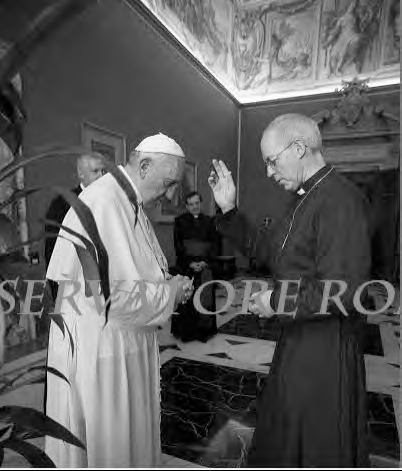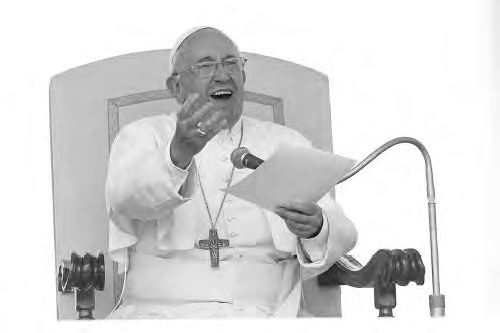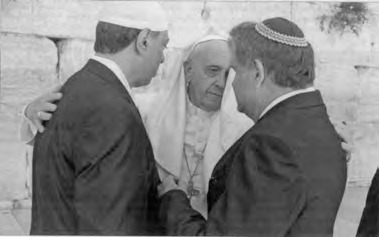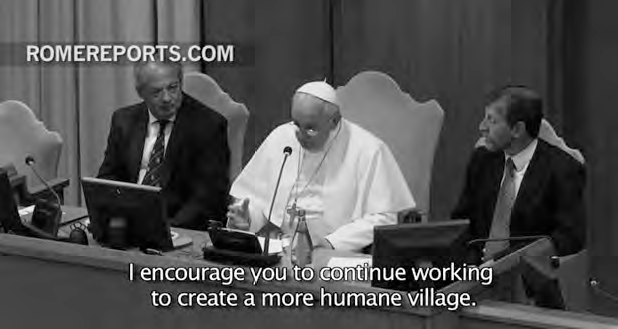Continuing the Battle of Saint Pius X
Sermon given at the Dominican Monastery of La Haye-aux-Bonshommes Avrillé (France)
My Dear Brethren,
Today, the Church makes us celebrate the feast of Saint Pius X.
Let us remember the exceptional destiny of a small child from the countryside, who became priest, pastor, canon at Treviso, Bishop at Mantua, Cardinal, Patriarch of Venice, then Pope; a Pope whose “pontificate shone like in the Golden Ages of Church“ according to the expression of Pope Pius XII 1.
Divine Providence placed a saint on the seat of Peter, at the dawn of a century that would see, on the occasion of two world wars, the installation of communism, and then globalism into this world; and where the Church, infiltrated by her enemies, would know the gravest crisis of her history.
It is thus valuable to recall the teachings of this saint, to guide us in the present times. It is not for nothing that Msgr. Lefebvre wanted to make him the celestial patron of his work of restoring the priesthood, and of the battle that we lead today for the Church.
By nature, no one sweeter, more amiable than he, no one more a friend of peace, no one more paternal. […] [But] in front of the unavoidable attacks against God and the Church, he knew how to rise up like a giant in all his majesty, […] making the powers of the earth tremble and retreat, reassuring the hesitant and galvanizing the timid 2.
Restoring all things in Christ
He set the tone in his first encyclical:
Who can fail to see that society is at the present time, more than in any past age, suffering from a terrible and deep-rooted malady which, developing every day and eating into its inmost being, is dragging it to destruction? You understand, Venerable Brethren, what this disease is – apostasy from God.
And as might be expected we find extinguished among the majority of men all respect for the Eternal God, and no regard paid in the manifestations of public and private life to the Supreme Will – nay, every effort and every artifice is used to destroy utterly the memory and the knowledge of God 3.
A century later, how relevant this is! He continues:
When all this is considered there is good reason to fear lest this great perversity may be as it were a foretaste, and perhaps the beginning of those evils which are reserved for the last days.
To combat the evil at its root, Saint Pius X sees only one solution: to restore all things in Christ. It will become his motto and essential agenda of his pontificate.
We proclaim that We have no other program in the Supreme Pontificate but that “of restoring all things in Christ” (Ephes. i., 10), so that “Christ may be all and in all” (Coloss. 3, 2). […]
We shall never, however much we exert ourselves, succeed in calling men back to the majesty and empire of God, except by means of Jesus Christ. “No one,” the Apostle admonishes us, “can lay other foundation than that which has been laid, which is Jesus Christ” (I. Cor 3, 2) 4.
This is why Pius X will vigorously condemn the separation of Church and State in France and will forcefully defend the liberty of the Church in face of the plundering French government 5.
Obviously, more than a century later, the evil is so deep and the entire world is so much in the grips of Freemasonry that any purely human means cannot reverse the course of things, it is necessary to be realist.
But let us not be discouraged! The pope continues:
The victory will ever be with God […] We believe and expect with unshakable faith. But this does not prevent us also, according to the measure given to each, from exerting ourselves to hasten the work of God – and not merely by praying assiduously […] but, more important still, by affirming both by word and deed and in the light of day, God’s supreme dominion over man and all things, so that His right to command and His authority may be fully realized and respected 6.
Battling Modernism
But what do we see today, after the latest Council?
The popes travel the world preaching the rights of man; since the Council, the Vatican has demanded that the last remaining Catholic States not mention in their constitutions that the Catholic religion is the State religion and to give the same rights to all the religions. In no speech is it understood that Our Lord is the only Savior of men and societies. Such a silence, if one thinks about it, is hardly believable.
Msgr. Lefebvre could write:
This is our opposition [to Rome today], and this is what cannot be understood. Our Lord came to reign. They say no, and we say yes with all the popes [before the Council] 7.
How did we get there?
Well! The good God rose up a saint at the beginning of the 20th century to enlighten and warn us in advance. This is the great encyclical of Pius X on the doctrines of the modernists: Pascendi Dominici Gregis, 8 September 1907.
Saint Pius X had the lucidity to see, and the courage to say, that the evil is not only in civil society, but that it is also in the Church, which is much worse:
The partisans of error are to be sought not only among the Church’s open enemies; they lie hid, a thing to be deeply deplored and feared, in her very bosom and heart, and are the more mischievous, the less conspicuously they appear. […] Though they express astonishment themselves, no one can justly be surprised that We number such men among the enemies of the Church 8.
And Saint Pius X analyzed the entire modernist system.
It is not possible to explain the details of the whole encyclical here 9.
What is necessary to understand is that modernism completely destroys the faith.
Faith, as you know, is a gift from God received at baptism, which makes us hold as true all that Our Lord has revealed to us, and which he teaches us through His Church, when she speaks infallibly. This is what we recite in the act of faith:
My God, I firmly believe all the truths that you have revealed and that you teach us by your Church, because you cannot be deceived nor deceive us.
What is it for the modernists? What is faith for them? Saint Pius X says that for the modernists :
Human reason is […] incapable of lifting itself up to God, and of recognising His existence, even by means of visible things. (§6)
Faith […] consists [only, for them] in a sentiment which originates from a need of the divine (§7)
The divine reality [existence of God], for the Modernists […] [is found] In the experience of the individual. (§14)
What is to prevent such experiences from being met within every religion? […] And with what right will Modernists deny the truth of an experience affirmed by a follower of Islam? With what right can they claim true experiences for Catholics alone? Indeed Modernists do not deny but actually admit, some confusedly, others in the most open manner, that all religions are true. (§14)
This is today’s ecumenism. And it is what Masonry seeks for extending its global government, precursor of the antichrist. One cannot find anything more opposed to the motto of St. Pius X: « To restore all things in Christ! »
Of course the Catholic life is not something purely intellectual. A certain “experience” of God is found in it. Catholic life is a life of friendship with Our Lord, through the virtue of charity, the action of the Holy Ghost, and His seven gifts. All this makes our faith a living faith.
But when religious experience is not guided by the faith, if it is entirely reduced to sentiment, to individual conscience, the door is open to all deviations and heresies:
[Modernism is] the synthesis of all heresies (§39).
[It leads to] the annihilation of all religion, – atheism (§39).
Modernism was clearly condemned by Saint Pius X. The pope even took strict measures to remove the modernists from positions of responsibility.
But they refused to submit, continued to work underground, and three years later the pope will find:
They have not ceased to attract followers, either, by forming a clandestine group; by these means, they inject in the very veins of the Christian Republic the virus of their doctrine, by editing books and publishing articles in anonymity or with pseudonyms 10.
And they held the power at the Second Vatican Council.
Continuing the fight of Saint Pius X
Well! It is necessary to continue the fight of Saint Pius X, which is simply the fight of twenty centuries of Church; it is the only combat that has the assurance of victory, as the holy pope reminds us.
Studying and disseminating Catholic doctrine
It is first necessary to save the faith, which is disappearing today.
Saint Pius X has constantly insisted on the necessity of disseminating Catholic doctrine, encouraging the study of St. Thomas Aquinas; adding to the Catechism of the Council of Trent a simplified catechism in the form of questions and answers, which is extremely deep and luminous, now called the Catechism of Saint Pius X.
He asked the bishops to found schools of religion for the youth in the cities, and he asked the priests to institute congregations of Christian doctrine in the parishes. He insisted that, in their sermons, priests should make the Council of Trent known 11.
Pius XII calls Saint Pius X “the pope of Catholic doctrine” 12.
In this spirit, it is necessary that the faithful today implement a program of readings for the year, fixing each week a time for religious reading, alone or as a family; or organize a doctrinal group to study doctrine with other faithful, under the guidance of a priest.
Living the Mass
Then we must focus our life on the Mass.
Regnavit a ligno, Deus : God reigns by the cross.
At Calvary, Our Lord has definitively conquered sin, the devil, and the world. Holy Mass, renewing the Sacrifice of Calvary, extends the victory and reign of Our Lord over our countries. Christendom was built around the altar of the Sacrifice.
Saint Pius X therefore wanted to establish his fight for Christ the King on the Holy Sacrifice of the Mass, the Holy Eucharist.
Pius XII calls Saint Pius X “the Pope of the Holy Eucharist in our time” 13:
– he restored the dignity of worship, “primary and indispensable source of the true Catholic spirit” 14;
– he reestablished frequent and daily communion in the Church, “much desired by Jesus Christ and by the Catholic Church” 15;
– he allowed little children to receive holy communion early, as soon as they can “distinguish the Eucharistic Bread from ordinary bread” 16.
The modernists destroyed the mass: it is the ecumenical mass of Paul VI. Divine Providence raised up Archbishop Lefebvre to give us Mass of all ages. Let us live the holy Mass, now that it has been returned to us. Let us read about the Mass; if we are living not far from a traditional chapel, let us try to go to Mass on weekdays, at least sometimes; let us prepare the evening before Sundays, by reading the texts of the Sunday Mass, and make a good thanksgiving after Holy Communion, at least spiritually if we cannot attend Mass (we will have the same spiritual fruit).
Making Our Lord reign amongst us
Finally, Saint Pius X exhorts us to work for the restoration of all things in Christ by word and deed, study the doctrine of Christ the King, make it known around us, and constitute strongholds of resistance where Our Lord may reign: our soul, our families, our traditional parish communities, and wherever we can influence.
**
As a conclusion, let make ours the prayer of the Church in the collect of the Mass for the feast of saint Pius X:
O God Who, for the defense of the Catholic faith and the restoration of all things in Christ, filled St. Pius, the Supreme Pontiff, with heavenly wisdom and apostolic fearlessness, mercifully grant that, by following his teachings and examples, we may receive Your eternal rewards. Amen.
1 – Pius XII, Allocution for the beatification of Saint Pius X , 3 June 1951 (AAS 43 pp. 471).
2 – Pius XII , Ibid. p. 472
-
3 – Saint Pius X, encyclical E Supremi Apostolatus, 4 October 1903, §3 and §4.
-
4– Saint Pius X, Ibid. §4 and §8.
-
5– One can refer to his encyclical Vehementer nos, 11 February 1906.
-
6– Saint Pius X, encyclical E Supremi Apostolatus, §7.
-
7– Mgr Lefebvre, L’Église infiltrée par le modernisme, Éditions Fideliter, 1993, p. 70.
-
8– Saint Pius X, Pascendi Dominici Gregis, 8 September 1907, §2 and §3.
-
9– Le Sel de la terre 93 (été 2015) published a complete analysis of this encyclical by Msgr Richard Williamson (pp. 71-87). One can also read the Catechism on Modernism by Fr. Jean-Baptiste Lemius, O.M.I., published in 1907 with a letter of commendation by Cardinal Merry del Val. The French edition was happily reprinted by Éditions Delacroix in 2003.
10– Saint Pius X, Motu Proprio Sacrorum Antistitum, 1 September 1910 [English translation]
11 – Encyclical Acerbo Nimis, 15 april 1905, on the teaching of catholic doctrine.
12 – Pius XII, Allocution for the beatification of saint Pius X, ibid.
13 – Pius XII, Allocution for the beatification of saint Pius X, ibid.
14 – Saint Pius X, Motu Proprio Tra Le Sollecitudini on Sacred Music, 22 november 1903.
15 – Saint Pius X, Decree De Quotidiana SS. Eucharistiae sumptione, 20 december 1905.
16 – Saint Pius X, Decree Quam Singulari, 8 august 1910.




